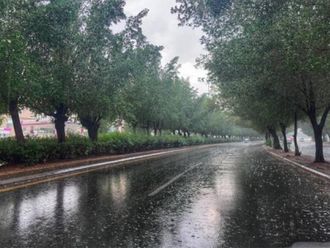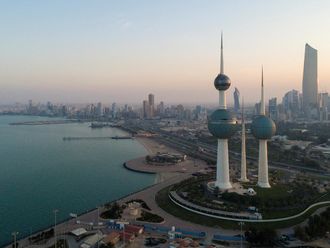Shanghai: Millions of lives will be unnecessarily lost to rising rates of respiratory disease and lung cancer unless the Chinese government takes determined action against rampant air pollution, according to one of the country’s foremost lung experts.
Bai Chunxue, the head of respiratory medicine at Shanghai’s Zhongshan Hospital, said that while smoking was still the main culprit for lung cancer and chronic obstructive pulmonary disease (COPD), the dangerously high level of air pollution was taking an increasing toll on Chinese lungs. “If air pollution is not reduced we will have more and more respiratory disease, including lung cancer, COPD, asthma and even pneumonia and also heart disease, coronary heart disease,” said Dr Bai, who is also chairman of the Chinese Alliance against Lung Cancer and the director and founder of the Shanghai Respiratory Research Institute. He singled out the level of fine dust particles with a diameter of 2.5 micrometres or less —known as PM2.5 — as especially dangerous because of their impact on respiratory and cardiovascular systems.
“Respiratory disease, including lung cancer, causes a very high incidence of mortality,” he said. “Therefore, if they [authorities] pay more attention to prevention and treatment we can save a lot of lives — not only of Chinese patients but of foreigners, because air pollution is not just causing a problem for China. It can move to Japan, to America, anywhere.”
Dr Bai’s comments came as state media took the unusual step this week of lampooning the Chinese government for failing to protect its citizens from toxic air. “Don’t pretend to be blind to the smog,” CCTV, the state broadcaster, urged on Sina Weibo, the Twitter-like social media platform, after Beijing’s air quality plummeted to “hazardous” levels over the weekend but authorities failed to take emergency measures.
“The government should not shun its responsibility or turn a blind eye to the smog.” The English-language China Daily also condemned Chinese politicians for their “indefensible” response to a recent wave of air pollution.
“Beijing government leaders and leaders of other cities have time and again expressed their resolve to tackle the problem of air pollution,” it said. “But their inaction in the face of the heaviest air pollution in a month flies in the face of their own promises.”
Dr Bai, whose hospital is part of Shanghai’s well-regarded Fudan University, said he believed Communist Party leaders now understood they had to act. “They are also afraid of air pollution,” he said. He called for tougher fuel standards for vehicles and the closure or relocation of polluting factories.
Among a flurry of official announcements over recent days about anti-pollution initiatives has been a plan to create a 10 billion yuan “reward” scheme for cities that succeed in significantly reducing pollution. A 22-point nationwide “clean air plan” is expected to be submitted to the state council, China’s cabinet, soon.
Dr Bai, whose 40-strong medical team treats around 150,000 lung patients each year, said he feared that even with concerted action, “we will still have this problem in around 10 or 20 years”. Until then, he is taking precautions of his own. On smoggy days, he wears a face mask during his walk of just over a mile to work. He has also moved to a 37th floor flat. “It’s the top one in my building,” he said. “Air pollution is usually highest at the level between the 10th and the 20th floors.” China diagnoses about 1.3 million cases of chronic bronchitis and emphysema and about 600,000 cases of lung cancer each year. Over the past 30 years, deaths ascribed to lung cancer have risen by a factor of five, an increase that Dr Bai attributes to a combination of better diagnoses and rising levels of pollution.
He said tobacco was still by far the leading “risk factor” associated with both conditions, but was followed by “really serious” air pollution. Last December, during a particularly severe bout of smog, the number of outpatients at his Shanghai clinic rose by almost a third. Rising lung cancer rates among non-smoking women and the young also suggested pollution was an increasingly important risk factor, Dr Bai added.
Last November, an eight-year-old girl in Jiangsu province was diagnosed as China’s youngest lung cancer sufferer, with her doctor blaming air pollution. Despite a dearth of academic research on the topic in China, there is an increasing consensus about the connection between familiar grey skies over Chinese cites and the black lungs of their inhabitants. Air pollution causes between 350,000 and 500,000 premature deaths each year, Chen Zhu, China’s former health minister, estimated in the Lancet in December.
The Daily Telegraph












